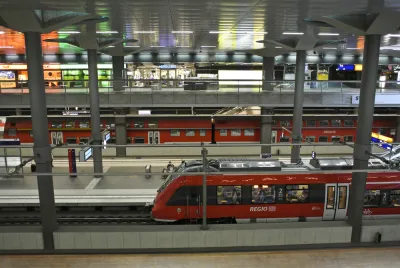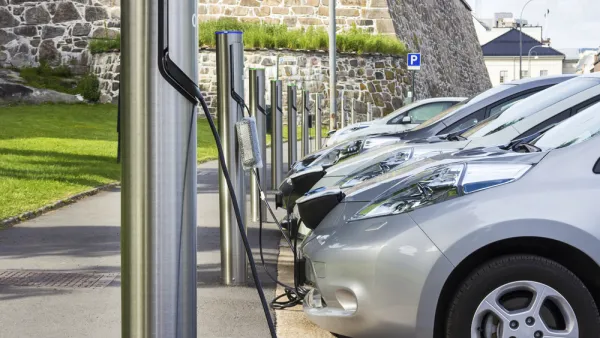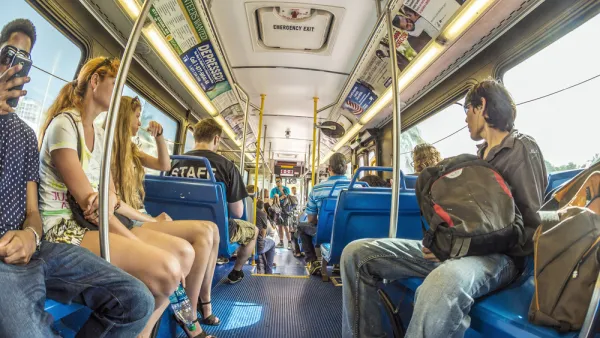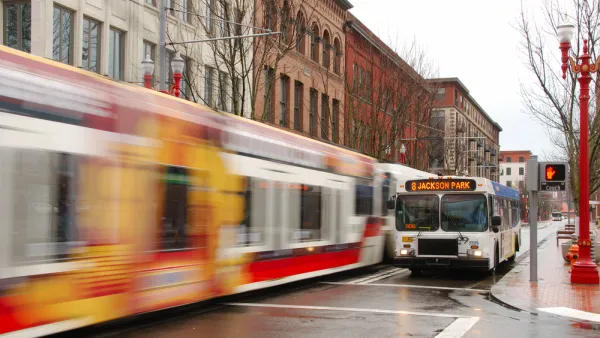With the transportation sector accounting for a third of urban carbon emissions, cities around the world are seeking new ways to electrify their transit fleets and reduce fossil fuel consumption.

As Somini Sengupta reports, more and more cities around the world are taking steps to reduce fossil fuel consumption in their transportation sector and electrify public transit.
Berlin is reviving electric tram lines that were ripped out when the Berlin Wall went up. Bogotá is building cable cars that cut through the clouds to connect working-class communities perched on faraway hills. Bergen, a city by the fjords in western Norway, is moving its public ferries away from diesel and onto batteries — a remarkable shift in a petrostate that has for decades enriched itself from the sale of oil and gas and that now wants to be a leader in marine vessels for the electric age.
"Urban transportation is central to the effort to slow climate change. Home to more than half the world’s population, cities account for more than two-thirds of global carbon dioxide emissions," with transportation as the biggest–and fastest-growing–source, accounting for roughly a third of cities' emissions. Chinese bus manufacturers are taking notice, supplying electric fleets to cities including Los Angeles and Santiago, Chile. Supporters say "the change is audible" as near-silent electric buses replace the roar of gas-powered vehicles.
"At the moment, only 16 percent of city buses worldwide are electric. The electric switch will need to accelerate, and cities will have to make mass transit more attractive, so fewer people rely on automobiles." For the growing metropolises of the developing world, electrification is expensive and challenging. "But where cities are succeeding, they’re finding that electrifying public transit can solve more than just climate problems. It can clean the air, reduce traffic jams and, ideally, make getting around town easier for ordinary people, which is why some politicians have staked their reputations on revamping transit."
FULL STORY: Trams, Cable Cars, Electric Ferries: How Cities Are Rethinking Transit

Analysis: Cybertruck Fatality Rate Far Exceeds That of Ford Pinto
The Tesla Cybertruck was recalled seven times last year.

National Parks Layoffs Will Cause Communities to Lose Billions
Thousands of essential park workers were laid off this week, just before the busy spring break season.

Retro-silient?: America’s First “Eco-burb,” The Woodlands Turns 50
A master-planned community north of Houston offers lessons on green infrastructure and resilient design, but falls short of its founder’s lofty affordability and walkability goals.

Test News Post 1
This is a summary

Analysis: Cybertruck Fatality Rate Far Exceeds That of Ford Pinto
The Tesla Cybertruck was recalled seven times last year.

Test News Headline 46
Test for the image on the front page.
Urban Design for Planners 1: Software Tools
This six-course series explores essential urban design concepts using open source software and equips planners with the tools they need to participate fully in the urban design process.
Planning for Universal Design
Learn the tools for implementing Universal Design in planning regulations.
EMC Planning Group, Inc.
Planetizen
Planetizen
Mpact (formerly Rail~Volution)
Great Falls Development Authority, Inc.
HUDs Office of Policy Development and Research
NYU Wagner Graduate School of Public Service




























